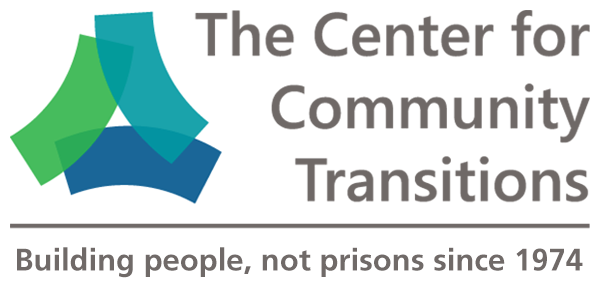Second Chance Employers
What’s the key to reducing recidivism and improving public safety? Finding employment for people with criminal records and offering them pathways to career success.
“The number one way to make it safe for a person returning home from incarceration is to give them the opportunity of employment.”
CCT helps formerly incarcerated men and women get back into the job market through employment readiness workshops and networking opportunities. We also coach clients on how to resolve workplace conflicts and manage the stress associated with difficult conversations.
But former offenders seeking jobs are only successful if companies are willing to look beyond their criminal record and implement proactive and well-informed employment practices. This includes empathizing with their situation and understanding the barriers they face post-incarceration.
Why hire workers with criminal records?
The Society for Human Resource Management (SHRM) is the foremost expert and thought leader on work, workers and the workplace. The organization offers several reasons why hiring managers and HR professionals should offer jobs to workers with criminal records:
- It’s a chance to hire the most qualified candidates from a diverse pool.
- There’s intrinsic value in giving people second chances at employment.
- It’s an opportunity to improve our communities.
- 2.3 million Americans are incarcerated; 1 in 3 adults (or 75 million Americans) have a criminal record.
- Participation in correctional education results in a 43% reduction in recidivism.
Best practices and hiring strategies for second chance employees
The SHRM Foundation’s Getting Talent Back to Work initiative provides best-practice principles that benefit businesses and those seeking a second chance.
A 10-question self-assessment offers a "first step to learning about hiring talented job seekers with criminal and or conviction records" as well as tools and resources to initiate change in the workplace. The free Digital Toolkit includes five steps to help employers recruit, welcome and develop individuals with a criminal background: workplace readiness, acquisition, onboarding, development and mobility.
Jeff Korzenik, chief economist at Fifth Third Bank and national advocate for second chance employment, said the “richest pool of potential” in the economy are people who have been touched by the justice system.
Steps businesses can take to explore second chance hiring:
- Recognize there are low-risk hires. People who may have a criminal record and may be required to check the box if your firm requires the box on employment applications. If the person has been actively employed for five or 10 years, they shouldn’t be considered any different from any other candidate.
- Understand what people who have exited prison, or are burdened with a conviction, have to do to overcome barriers. Someone who has been employed for years shows tremendous dedication, persistence and grit – an undoubtedly attractive attribute in employees.
- Educate yourself on what it means to have a felony, review the record and understand the individual circumstances. How long ago was it? Was it a crime of youth, passion or youthful misjudgment? A crime does not tell the story of the person’s character today.
- Visit employers who hire second chance employees and have been successful. Those pioneers can show you the tools they’ve used and how it’s a viable way of doing business.
- Visit with nonprofit partners to see the work they’re doing. You’ll walk away with the sense that this is a greater opportunity than you might otherwise have realized.
- If you’re not yet ready to hire people with records in your business, don’t exclude your vendors from doing so. Don’t prevent them from helping people rebuild their lives – healthier reentry benefits everyone.
- Offer amnesty to loyal employees who have a record that was never uncovered. People who’ve been contributing to your company for years or for decades, who may be living in fear that their criminal record will be exposed, deserve better.
Why hire workers with criminal records?
It’s COVID-safe, convenient and you don’t have to leave your desk. Contact Sherina Richard, LifeWorks! program director, to schedule a call, virtual meeting or to attend a networking hiring event.
srichard@cctcharlotte.org
(704) 374-0762, ext. 3706
Other resources for Second Chance Employers
Data Deep Dive: The Workforce Impact of Second Chance Hiring U.S. Chamber of Commerce
How Employers Can Build Career Pathways for Ex-Offenders U.S. Chamber of Commerce
The Second Chance Act (Senate Bill 562)
NC Freedom to Work Act (Senate Bill 712)
Freedom to Work/Occupational Licensing Reform (House Bill 770)
NC Fair Chance Hiring (Executive Order 158)
The Reintegration Agenda During Pandemic:
Criminal Record Reforms in 2020
NC Second Chance Alliance: Restoring Opportunities. Strengthening Families & Communities.
Fair Chance Criminal Justice Project
Untapped Talent: How Second Chance Hiring Works for Your Business and the Community
National Center on Institutions and Alternatives (NCIA)
Herbert J. Hoelter Vocational Training Center
National Inventory of Collateral Consequences of Conviction
Untapped Talent: How Second Chance Hiring Works for Your Business and the Community
Second Chance Employment & Justice Reform In the news
PODCAST - Fair Chance Conversations: Patrice Funderburg on Building Community Partnerships
To reduce recidivism, address the root causes
How Thousands of American Laws Keep People ‘Imprisoned’ Long After They’re Released'
Former criminal offenders bring new talent to businesses willing to expand hiring practices
4 Best Practices for Second-Chance Hiring
Hiring People with Criminal Backgrounds Is Easier Than You Think
Second Chance Act would help ex-offenders get housing, employment
Second Chance Hiring Enhances Talent Pipeline, Empowers People
New Rule Allows Banks to Hire More People with Criminal Records
Formerly Incarcerated Are an Overlooked Source of Talent
Shedding Preconceived Ideas About Workers with Criminal Records
Sorry, we do not have any events scheduled at this time. Please check back soon.

